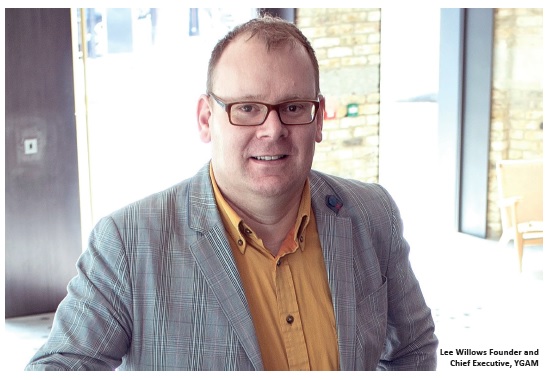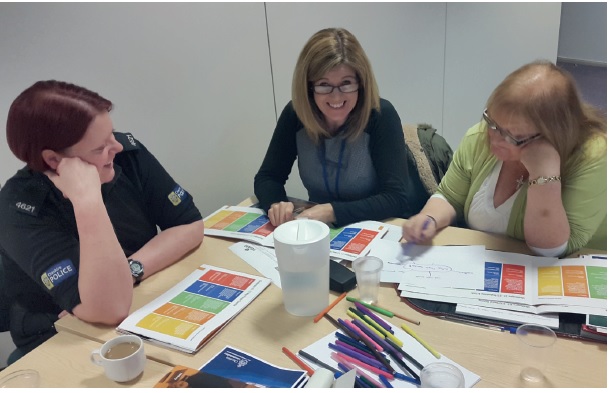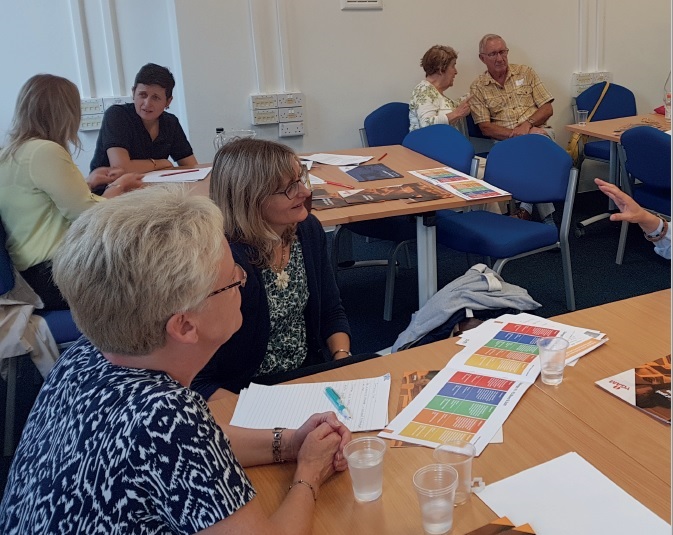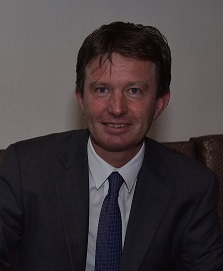Peter White chats to Lee Willows, Founder and Chief Executive YGAM
For those of our readers not familiar with the charity, Young Gamblers Education Trust ‘YGAM’ could we commence this interview with an explanation of its purpose, aims and objectives?
For those of you unfamiliar with YGAM we are an independent UK-Registered Charity with a social purpose to inform, educate and safeguard young people against problematic gambling or gaming. Of the twelve Priority Actions as identified in the Responsible Gambling Strategy Board (RGSB) National Responsible Gambling Strategy, YGAM’s social purpose contributes to delivery of Priority Action Eight; Education to Prevent Gambling- Related Harm.
YGAM trains, quality-assures and certifies practitioners and teachers to deliver our education programme. This programme builds digital resilience and financial literacy among young people, students and vulnerable adults under 25 years old and increases their knowledge around e-safety and red flags for those who choose to gamble or game. Additionally, YGAM works with partner universities and employs students in part-time Living Wage roles to raise awareness of gambling-related harm as part of student services provision in the host university.

The YGAM education programme itself comprises over 150 teaching and information resources, all of which are accredited and quality-assured by the Ofqual Awarding Bodies Pearson and ASDAN and are additionally quality-assured by the PSHE Association. Furthermore, the YGAM education resources and feedback from a sample of teachers and practitioners who participated in the YGAM training have been independently evaluated by City, University of London as part of an eight-month evaluation. No other programme in the UK has opened itself up to so much independent scrutiny. In 2016/17, almost 30,000 young people accessed our education programme and we worked with 348 organisations. For 2017/18, we are planning on reaching at least 100,000 young people.
How does the Charity assist school children with advice on gambling?
Some of your readers may be aware that I founded YGAM with colleagues off the back of my own struggles with gambling and after extensive research from similar programmes in the past in the UK and across the globe. We listened to teachers, parents, academics, regulators, problem gamblers, students and young people themselves about what a programme of awareness should contain. After extensive piloting, going through the various quality-assurance process and an eight-month independent evaluation the answer wasn’t quite what we originally expected.
Professionals who teach young people and young people themselves wanted an inclusive digital resilience programme, covering far more than problem gambling only. Three years and several revisions later, we have an awareness programme that is educational rich, relevant, highly appropriate and a programme that is well-received by everybody who engages. The programme itself is structured around what we call the YGAM Curriculum and this curriculum covers Why People Gamble & Game; The Gambling & Gaming Industry; Probability & Luck; Money & Debt; Addiction & Mental Health and Social Gaming. We have developed over ten structured lesson plans / activities for each of these areas and these are supplemented with a further 100 education resources which can be downloaded to support delivery directly to young people or students.
Feedback from both professionals who deliver our programme and from young people or students themselves is positive. Everybody comments on the creative nature of our programme as lesson plans / activities include film making, music making, art and drama. All activities are linked to five key skill areas Leadership & Teamwork; Learning & Sharing; Creative Thinking; Research & Presentation and Preparation and Discussion.
Finally for the past three years our focus has been on 11-25 year olds; however, in 2018 we hope to launch a parent’s guide as we are being invited more and more to speak with parents and appropriate primary school resources.
Do you have an instructional Video for Schools?
We have a bank of public videos which we have permission to share with teachers or young people; however, we are about to start a piece of work with two operators to develop, pilot and evaluate bespoke video content.
What is the reason behind the creation of the Charity?
What I find interesting is from my long career within the third sector and education sectors, I never came across programmes focused on problem gambling or gaming for young people. In fact, I never gambled until I was in my late thirties, let alone know people could be affected negatively by gambling……… until it happened to me.
It has been important that I move forward positively following my addiction and that I do not become defined by it. I am not a campaigner and I totally agree that the majority of people experience no harm from gambling, but similar to drinking alcohol, some customers will. In society today we have a lot of awareness programmes aimed at young people or students around mental health and addictions, but we have very little around gambling, gaming and digital resilience per se.
Being described as an entrepreneur by others and having achieved great things and high office in my career at a relatively young age, I wanted to use these skills to do something positive and fill what I now know is a huge gap in young peoples’ education.

Do you think society should have a better understanding and appreciation of addictions than they do currently? And having gone through all the various counselling and therapies and personal challenges along that path to where you are now does it mean that you are able to talk to addicts with a special level of understanding.
Society does not understand gambling (or behavioural) addictions. Ask most people and they describe an addict as somebody who is addicted to a substance ‘a drunkie’, ‘an alcoholic’ – terrible labels in my view and there lies one of the problems. As a society we love to label people, perhaps using a label because we do not really understand it. I was born the son of a miner, growing up in a working-class family, I have never been a fan of labels and to my way of thinking, if you have a problem in life, you need to accept responsibility, get some help, sort it and move forward.
There lies another problem...accepting responsibility. I am a strong believer that to move forward from any addiction (behaviour or substance), you need to take responsibility. None of us are born addicts, but our behaviours or actions can cause us to become addicts. Knowing and accepting something is causing you harm and taking responsibility to become abstinent is critical. I often wonder if alcohol was liberated in 2005 as gambling was, would bars across the country have to provide self-exclusion schemes, would there be the huge research into alcohol-related harm as we see in gambling-related harm and would the media have a narrow view, perhaps on one product such as whisky or vodka.
Stopping gambling was without doubt the hardest thing I have ever had to do. I loved the escapism and the genuine thrill and buzz. Nothing has come close to that feeling, but I know I need to have balance in my life. Gambling for me, led to a loss of balance and distorted my thinking massively. Why else would I have spent a lifetime worth of savings, taken on huge debt, committed crime and planned to take my own life. Reflecting and looking back, gambling detached me from reality and provided a huge amount of comfort. I loved the thrill so much, like any other addict I wanted more and more and the lengths I would go to get the thrill were staggering.
Many addicts only reach out for help when it is actually too late; I wasn’t really aware of the signs of the trouble that I was getting into and that is why I am such a huge advocate for more awareness and education. The mind of an addict doesn’t choose to see all the negative consequences; addicts are optimistic and will convince themselves to do anything to get their fix.
In your opinion do you think there are other initiatives those organisations involved in the Gambling industry in the UK can take to assist in educating the public about gambling - including lotteries which, in many people’s minds, have little association with ‘gambling’?
The gambling industry is going through a lot of scrutiny now, very similar to the banking sector ten years ago. The gambling industry really needs to claim back the story. I cannot help but think of similarities with the banking sector.
The banking sector did successfully claim the story back and one thing I have seen from working in the third sector is many banks have now separated out regulation and corporate social responsibility. This has to be the single most important opportunity for the gambling industry right now. The public can tolerate huge profits, if they get a good sense that a company is doing its bit for the local community or planet. Who would have thought it, HSBC devote huge resources to the Water Programme, Barclays are helping to get older people on line, Lloyds are supporting social entrepreneurs and Natwest have championed financial education for young people.
Building digital resilience among young people is the number one priority for Personal, Social, Health & Economic (PSHE) education right now and what a powerful message for the gambling industry to get behind in a collaborative way.
Digitally aware 18-25 year-olds, often living with parents, tend to have large disposable incomes. They are likely to have an interest in sports and support teams that retain betting industry sponsors. Is there enough being done to ensure this group is aware of the pitfalls of gambling?
Sport and gambling are absolutely wrapped together; many young adults enjoy watching a football match and having a bet. With the rise of in-play betting there are now many more opportunities. Is this a problem? Well, no I don’t think it is; in my view many young adults enjoy a couple of drinks during a match and so what is the difference. If we take the view that gambling affects a minority of people, then surely this is the same for alcohol. However, as we know gambling is emotive, whereas alcohol isn’t and therefore going back to what I said earlier about Corporate Social Responsibly, football teams, whether sponsored by gambling companies or not, may choose to take a look at what they are doing to safeguard their fans against gambling harm. There seems to be a great opportunity here to develop something impactful and for football to take the story back.
What I do draw the line at, however, is under 18s football kits; these should not be sponsored by gambling companies; it is the right thing to do.

How is YGAM funded?
76% of YGAM’s income for the period ending 30 June 2017 was from direct corporate donations by the gambling industry, with the remaining 24% coming from charitable trusts & foundations, individuals or sales. We are not funded by GambleAware and are working hard to develop a diverse income base for the charity.
Our challenges are around restricted vs unrestricted income and developing reserves for the charity, not who funds the work of charity. Fundraising is incredibly hard to do and the ‘norm’ within this sector is gambling companies donate to GambleAware. We have spent a considerable amount of time developing relationships with the sector and I am proud that some operators have got behind our social purpose. YGAM is authentic, delivers exceptional social value and we have been able to offer employee volunteering opportunities to those who support our social purpose which have proven popular.
2018 is a critical year for YGAM and to help us develop our unrestricted income and build a small amount of reserves we have incorporated a trading subsidiary, where all profits will be donated back to the charity. This trading subsidiary will offer the gambling industry bespoke, formal qualifications in identifying problem gambling, risk management and AML and customer service.
For those wishing to find out more about YGAM how can they contact you?
We love to hear from your readers if you want to support our amazing impactful start-up charity via corporate donations, employee volunteering or to discuss your training needs. YGAM will be at ICE 2018 (Stand CPZ4), please do come and see us or visit our website: www.ygam.org. Finally I can be contacted personally at: lee@ygam.org
 Peter White In addition to his role as Publisher of Casino Life and Bingo Life, Peter also undertakes interviews with leading Casino operators. He has travelled extensively over the course of 17 years, visiting Casinos World Wide as well as attending the leading gaming industry exhibitions and conferences. Peter is also Vice President, International Operations for leading US based Gaming industry consultancy, WhiteSand Gaming LLC and a Director at Screentrade Media Ltd, a leading International Publisher specialising in the Cinema Industry.
Peter White In addition to his role as Publisher of Casino Life and Bingo Life, Peter also undertakes interviews with leading Casino operators. He has travelled extensively over the course of 17 years, visiting Casinos World Wide as well as attending the leading gaming industry exhibitions and conferences. Peter is also Vice President, International Operations for leading US based Gaming industry consultancy, WhiteSand Gaming LLC and a Director at Screentrade Media Ltd, a leading International Publisher specialising in the Cinema Industry.

















